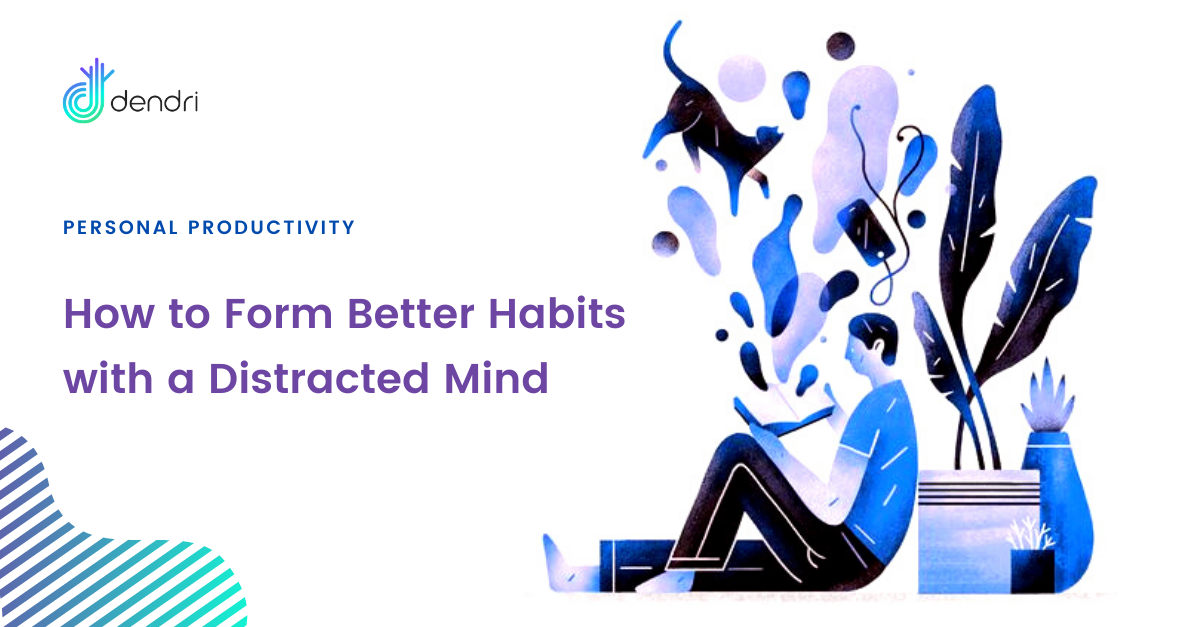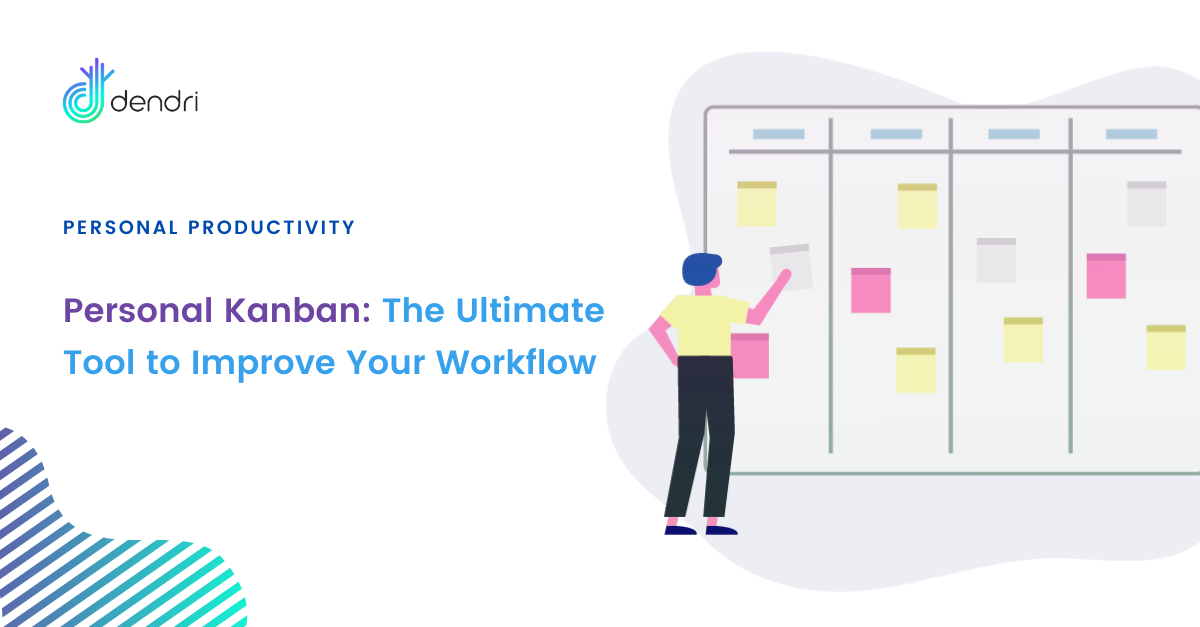
Approximately 70 percent of workers report feeling distracted when they’re on the job. Sixteen percent also say that they are “almost always” distracted.
I’m one of these people. I’m a dad to two children and my wife works as hard as I do at her job (harder). Add on top, running a law firm and a software startup, and the balance of trying to get stuff done at home and at work can get crushed with even a little distraction. If you struggle with distraction on a regular basis, it can be difficult to stay organized and maintain a high level of productivity at work or in your day-to-day life. There are lots of strategies I’ve tried, and some that really work to help stay focused, form good habits, get more done, and accomplish your goals.

Here are some of the thoughts I’ve come to over the years of trying to hack my brain to be more effective:
Common Habit Formation Challenges
Most of us know what it’s like to try and establish a habit that helps us to be more productive, more organized, healthier, etc. Most of us also know what it’s like to struggle to keep up with that new habit and make it a permanent part of our routine. It can be really daunting in 2020, when we all feel like we’re living in the darkest timeline. But, that makes it all the more important for us to take the little wins when we can.
Before we dive into the specific steps you can take to form better habits, I want to touch on some of the most common habit formation roadblocks that tend to get in people’s ways:
- Feeling Overwhelmed: When you try to make too many changes at once, or if you try to make changes that are too big, you might end up feeling overwhelmed and giving up altogether
- Feeling Defective: Some people feel that, because they struggle to form new habits or haven’t been able to do so in the past, they’re “broken” and shouldn’t even try
- Perfectionism: You might assume that, if you can’t perfectly integrate a new habit into your life right from the start, you shouldn’t bother
How to Form Better Habits
Do any of these roadblocks resonate with you? Have they held you back from forming good habits in the past? I know I’ve struggled with the second one, but imposter syndrome is something I routinely wrestle with.
If you’ve struggled to form good habits, the problem isn’t you. It might be the approach that you’re taking when you’re trying to establish those habits.
It’s not always enough (in fact, it’s rarely enough) to rely on willpower alone, and failure to get a habit off the ground doesn’t make you a failure. Here are some more effective strategies that you can implement on your self-improvement journey to form better habits and keep them up long-term:
Start Super Small
If you’ve spent any amount of time learning about habit formation or productivity, chances are you’ve come across this tip before. When I say start small, though, I mean it. Start with the barest minimum, and then work your way up from here.
Let’s use the habit of eating vegetables regularly as an example. Instead of saying that you’re going to eat a serving of vegetables with every single meal now and forever, what if you say you’re going to eat a vegetable once per day?
That seems a lot more doable, right? After a while, it’ll become second nature, and you’ll likely find yourself chomping through the garden with your best rabbit bud in no time. Even better, add a veggie to what you’re already eating. Put some spinach on your sandwich, grab some bell pepper slices to have next to your wings.
Focus on One Habit at a Time
Don’t try to overhaul your eating habits, your exercise habits, your work habits, and your organizational habits all at once. Trying to tackle everything at once will likely lead to overwhelm and cause you to feel so daunted that you end up not sticking to anything.
Make a list of the habits you want to change or establish in your life. Then, pick one to start working on. Maybe it’s the one that will make the biggest change in your productivity or sense of well-being, or maybe it’s the one that seems the easiest.
Whatever you pick, limit yourself to just that one habit for now. You can always add more later, once you’re feeling more confident in your abilities. The habit of building habits is a habit and each win will get you a few inches closer to your goals.
Identify Obstacles
When you’re trying to form a new habit, you’ll see better results if you set yourself up for success right from the start. One way to do this is to identify potential obstacles and, when possible, eliminate them. I’m a big advocate of task-period journaling to help figure out what’s standing in your way.
Let’s say you have a habit of scrolling through social media when you’re supposed to be working. If you want to establish a habit of only doing work during work hours, think about the obstacles that might get in the way of this.
If an obstacle is the amount of ease with which you can navigate over to social media sites, consider removing the obstacle by setting up a block on your computer so you can’t access those sites at work. Sometimes, it’s as simple as put your phone at the other end of your desk! (A little doom scrolling in 2020 is probably unavoidable).
Create a Contingency Plan
Don’t go in expecting perfection right away. Instead, go in acknowledging the possibility that you might fail. In fact, allow yourself the room to fail. Then, create a contingency plan.
What are you going to do if you mess up and find yourself scrolling on social media or going a few days without eating a vegetable? How are you going to help yourself get back on track?
Put a plan in place now so that, when the inevitable happens, you don’t throw the towel in altogether. Don’t beat yourself up. It took me a long time to learn that, just like our pets, positive reinforcement, operant conditioning is far more effective than the negative cortisol levels you send through your body with anxiety and the discomfort of failure. So, take that possibility away and leave yourself room only for the wins.
Stack Your Habits
The practice of habit stacking, a term coined by author James Clear, involves “stacking” a new habit that you’re hoping to develop on top of a habit that already exists. Habit stacking helps you to connect a particular behavior to another one, which makes it easier for you to remember to implement it.
Let’s say you want to form a habit of daily meditation. What existing habit can you stack meditation on top of? Maybe it’s changing into your pajamas at the end of the day. As soon as you change your clothes, you’ll sit down and meditate for one minute.
You change into your pajamas every day, so you don’t have to worry about forgetting, right? This will make it easier for you to remember meditation and integrate it into your daily routine.
Set Reminders
For folks who struggle with distracted minds on a regular basis, another helpful habit formation tip is to set up reminders for yourself.
Try setting alarms on your phone so you don’t forget to do things like workout, meditate, go for walks, handle tasks at work, etc. This will provide an audible cue and help you to ensure you’re fitting in the activities or practices that you want to include in your routine even when you get busy.
Seek Support
Finally, remember that you don’t have to change your habits or create new ones all by yourself. It’s okay to ask for help from others.
Perhaps you can ask your spouse or a family member to remind you to exercise or include a vegetable in your meal once a day. At work, maybe you can talk to your boss about moving to a different area of the office so that you’re less distracted and less prone to chatting with your neighbor when you’re supposed to be working.
In many cases, asking for support will help you to stay accountable and remember your goals. It can set you up for long-term success and habit change, too.
Improve Your Approach to Habit-Forming Today
Having trouble with organization and distraction is common, but you don’t have to just accept these issues. By making some simple adjustments to the way you form habits at work and in life in general, you can make big changes. Using the task period journaling alongside the kanban board in your Dendri dashboard can help you identify those little changes and stick to them to make a big difference over time. Take advantage of our free trial to check out how these techniques can help you grow and understand your bottlenecks.
Keep these tips in mind and take a step forward. Check out some of our other resources today, too, or reach out to me directly if you want to chat about tips for sticking to it and learn more about habit formation and productivity.
Related Posts

Personal Kanban: The Ultimate Tool to Improve Your Legal Workflow
The ultimate step-by-step guide to getting your work out of email and into a visual system that will save you time and increase your productivity. What is a Kanban? In the early 1940s, Toyota was…
- Mar 30
- 6 mins read


How To Unknowingly Sabotage Your Law Firm Employees
As an incoming attorney, you are subject to the random discovery of pre-set workflows and tech stacks your law office has already adopted. This unilateral focus on unified workflows can do you an injustice. Explore why today.
- Mar 17
- 4 mins read
Categories
Latest Post
Friday 7/2/21 updates
- July 2, 2021
- 3 mins read
Elevate project tracking with Dendri’s new Gantt Chart
- May 8, 2021
- 3 mins read
Personal Kanban: The Ultimate Tool to Improve Your Legal Workflow
- March 30, 2021
- 6 mins read
How To Unknowingly Sabotage Your Law Firm Employees
- March 17, 2021
- 4 mins read




